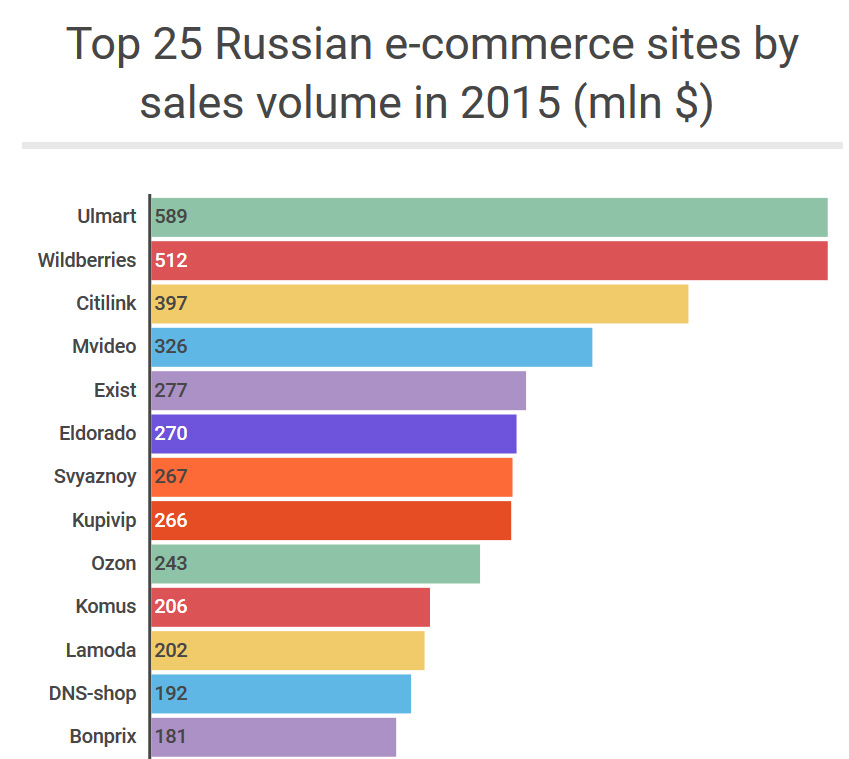Sberbank mulls launch of national e-commerce system in Russia

The system would bring under one roof several of the largest industry groups, including consumer goods, real estate, education, health care and travel.
Vostock-PhotoSberbank of Russia, the country's largest banking institution,is planning to set up what it describes as a national e-commerce ecosystem with the use of its own resources and infrastructure. The system would be based on the model used by major international e-commerce platforms such as Alibaba Group of China.
It is understood that the project will offer services both to end users and to businesses involved in a broad range of sectors, from education and health care to construction and consumer goods.
Banks can become drivers of a technological revolution in the creation of new ecosystems, Sberbank head German Gref said in Moscow on Deс. 13 at the World Economic Forum, which was held with the participation of the Roscongress Foundation, the organization responsible for hosting the St. Petersburg International Economic Forum.
According to Gref, who as minister of economic development stood behind the economic reforms of the 2000s, “IT eats an industry for breakfast every day; we can either transform or sit there waiting for our turn to be eaten.”
“If we manage to transform Sberbank successfully, then we will lso transform the entire financial sector, because the bank has a fairly significant influence sector-wide,” said Gref. According to him, one of the transformation phases could include switching from vertical organizational integration to horizontal ties, with no personnel hierarchy.
Alexei Mordashov, who heads Russian metallurgical giant Severstal, concurred: “Our key priority remains the same: building ties with our employees in the correct manner, because people are the main prerequisite for the company's development,” he said.
On the other hand, according to Mordashov, metallurgy and heavy industry have been finding it more difficult to introduce new technologies than the service sector, including banking.
Sberbank's experience
It was first reported that Sberbank was working on a project to launch a national e-commerce ecosystem using its in-house resources in November 2016.
By “ecosystem” the bank means a network of organizations based on a common technological platform and using its capacities to combine their services and make them available to clients, reports the Russian business daily Kommersant.
Such ecosystems have already been set up by Google, Amazon and Facebook in the U.S., and also by Tencent and Alibaba in China. Sberbank estimates that the economic value of such a project in Russia could reach 65 trillion rubles (around $1 trillion at the current exchange rate) by 2025.
The system would bring under one roof several of the largest industry groups, including consumer goods, real estate, education, health care, travel and leisure, telecommunications, government services, software development, business services, construction, manufacturing, and financial services.
“Sberbank's initiative is understandable and commercially viable,” said Emil Martirosyan, associate professor with the Institute of Business Studies at the Russian Presidential Academy of National Economy and Public Administration. “The global e-trade market is developing rapidly; commercial banks not only participate in its financing but also play an active part as service providers for the retail market and for ordinary consumers.”
E-commerce is the future but diversity is key
Experts point to the development of e-payments as a precondition for the creation of such an ecosystem.
“E-commerce is gaining speed around the world,” said Alexander Yegorov, a leading analyst at Russian broker TeleTrade Group. “For certain groups of commodities, the share of e-commerce is already becoming comparable to that of conventional trading methods. In my opinion, the Sberbank project is fairly topical and viable.”
According to Yegorov, Alibaba and other similar trading platforms demonstrate that rapid and successful development is possible not only on a national level but also internationally: “Given the relevance and economic feasibility of such a service, the project has quite good prospects,” he said.
In addition, he continued, Sberbank's project could fit in well with the government program to switch to Russian software products, and also with the requirement for personal data of Russian citizens to be stored on Russian-based servers.
Many online platforms around the world offer a broad range of services. The core business of Alibaba Group, for example, involves e-commerce through the online projects AliExpress, Alibaba.com, TaoBao.com, TMall.com, 1688.com, etc. However, the group also includes the financial arm Ant Financial; Aliyun cloud services; logistics operation Cainiao; online advertising service Alimama; a film studio; a web browser; a video portal; and an operating system.
On the other hand, explained Georgy Vashchenko, head of the Russian stock market operation at Freedom Finance investment company, setting up a similar structure is one thing, but it needs to be populated with products, which Russia does not currently have domestically in the required volumes.
Subscribe to get the hand picked best stories every week
All rights reserved by Rossiyskaya Gazeta.
Subscribe
to our newsletter!
Get the week's best stories straight to your inbox

